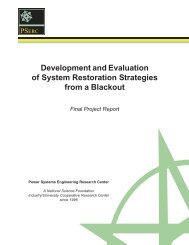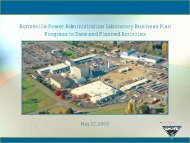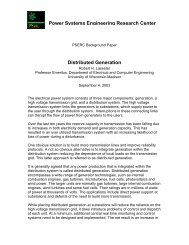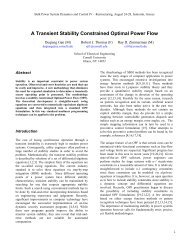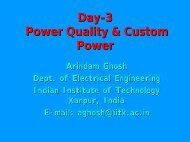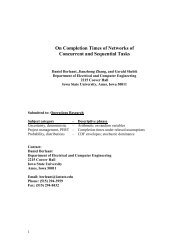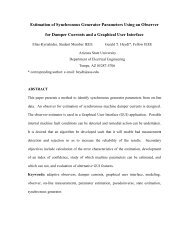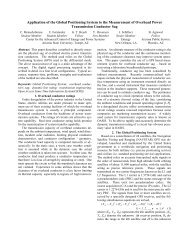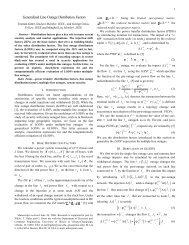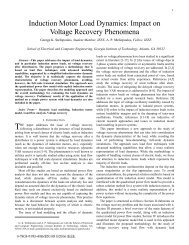Thrive: The Skills Imperative - Power Systems Engineering ...
Thrive: The Skills Imperative - Power Systems Engineering ...
Thrive: The Skills Imperative - Power Systems Engineering ...
You also want an ePaper? Increase the reach of your titles
YUMPU automatically turns print PDFs into web optimized ePapers that Google loves.
26<br />
Council on Competitiveness <strong>The</strong> <strong>Skills</strong> <strong>Imperative</strong><br />
improvements in productivity, quality, compliance, sustainability and innovation in the service economy and to<br />
create a cadre of workers to implement that knowledge. Many of today’s science and engineering graduates<br />
will work in the service economy. <strong>The</strong>y need the knowledge and tools to compete successfully. 34<br />
10. <strong>The</strong> Growing Service Sector Requires a New Combination of Capabilities<br />
Source: IBM Research, 2005<br />
Why Service Science?<br />
New Knowledge Drives the Process of Systematic Innovation…<br />
KNOWLEDGE SOURCES DRIVING SERVICE INNOVATIONS<br />
Science and<br />
<strong>Engineering</strong><br />
(Study<br />
phenomena<br />
and create new<br />
knowledge)<br />
Technology<br />
Innovation<br />
Business<br />
Innovation<br />
Business<br />
Administration<br />
and<br />
Management<br />
(Study<br />
phenomena<br />
and create new<br />
knowledge)<br />
Services<br />
Innovation<br />
Social Sciences<br />
(Study<br />
phenomena<br />
and create new<br />
knowledge)<br />
Social-Organizational<br />
Innovation<br />
Demand<br />
Innovation<br />
Global Economy<br />
and Markets<br />
(Emergence of<br />
new knowledge<br />
in practice!)<br />
Some of the questions this new discipline<br />
would address:<br />
• How to accelerate the rate of innovation in services,<br />
business processes and business models by<br />
understanding and filling the existing knowledge<br />
and tool gaps?<br />
• How to make innovation and creativity inside<br />
the company—intrapreneurship—as relevant<br />
to national competitiveness and growth as<br />
entrepreneurship? 35<br />
• How to anticipate customers’ demands and understand<br />
their real needs? Henry Ford once said:<br />
“If I had asked my customers what they wanted,<br />
they’d have said a faster horse.” 36<br />
• How to create an organization in which<br />
collective learning becomes a practice, not<br />
just a process? 37<br />
• How to design metrics for effectiveness, not<br />
just efficiency? 38<br />
• How to understand the fundamentals of service<br />
sector productivity and develop models to accelerate<br />
productivity growth?



